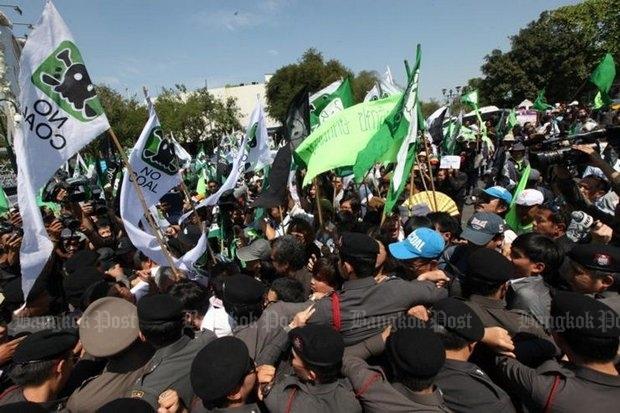Home > News > Industry Focus
Krabi coal plant to start anew
March.01 Coal
 Protests against the Krabi coal-fired power plant are on indefinite hold for now, as Prime Minister Prayut Chan-o-cha promises a brand new start on two environmental impact reports, and this time with public participation. (Bangkok Post photo)
Protests against the Krabi coal-fired power plant are on indefinite hold for now, as Prime Minister Prayut Chan-o-cha promises a brand new start on two environmental impact reports, and this time with public participation. (Bangkok Post photo)